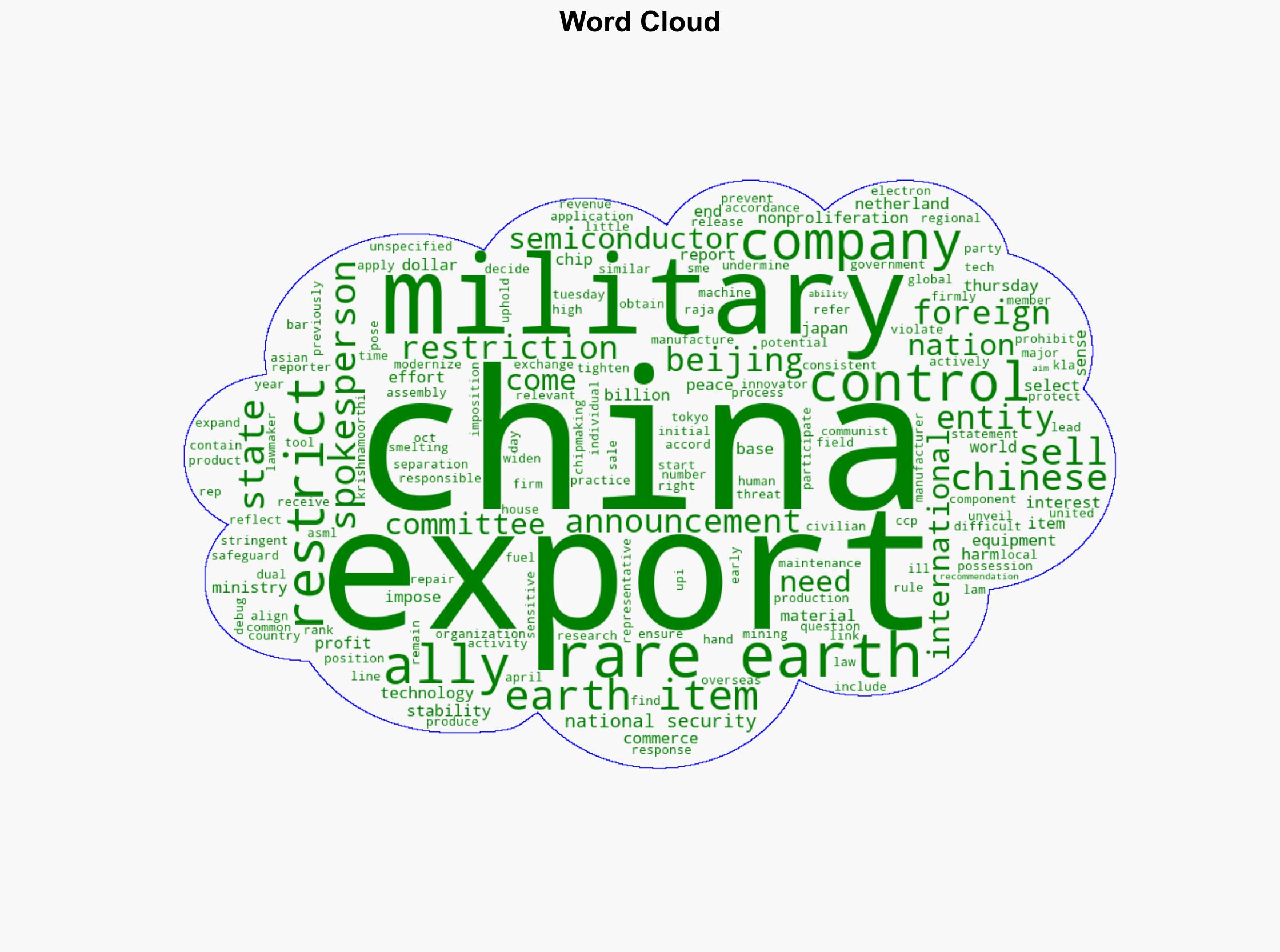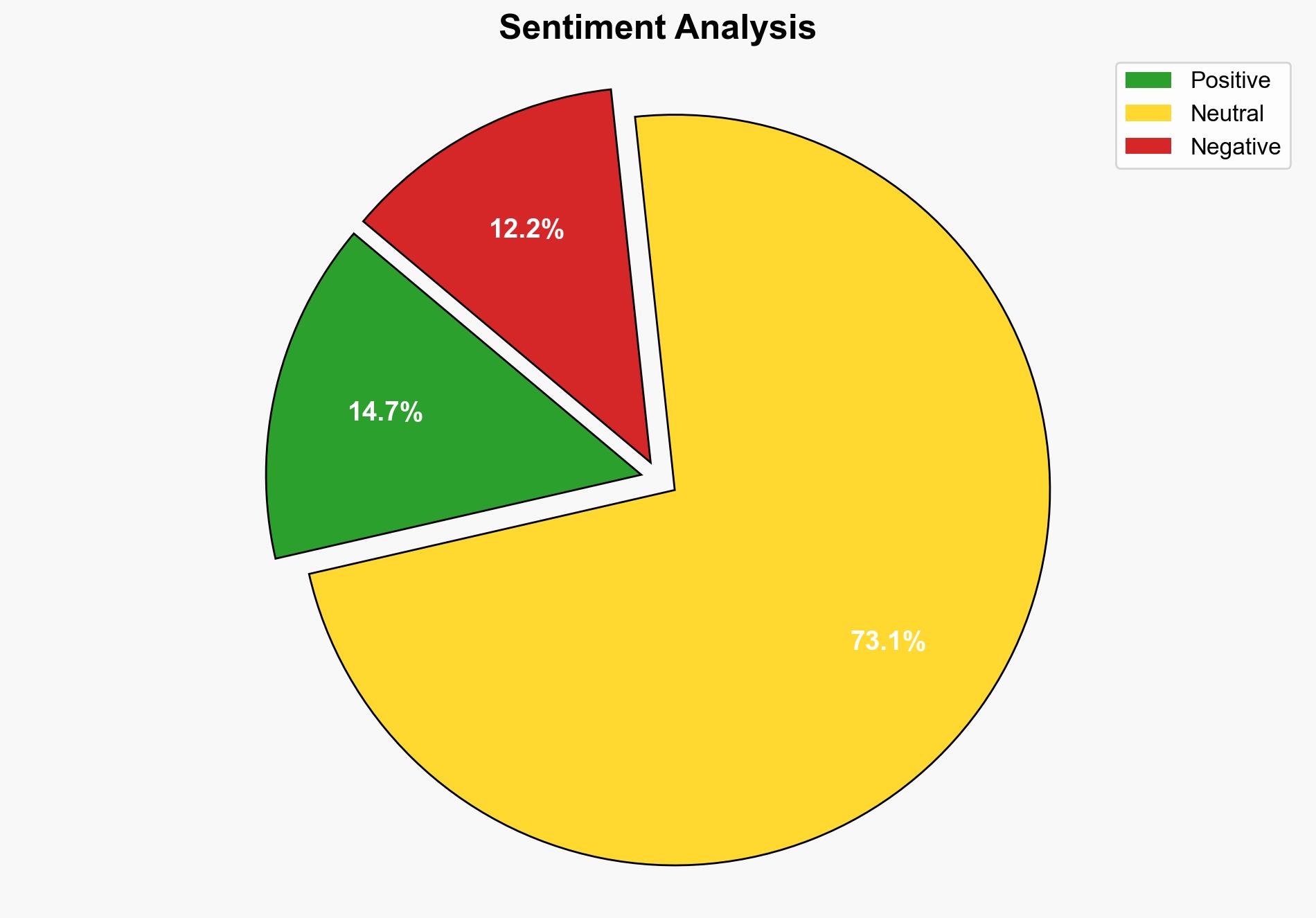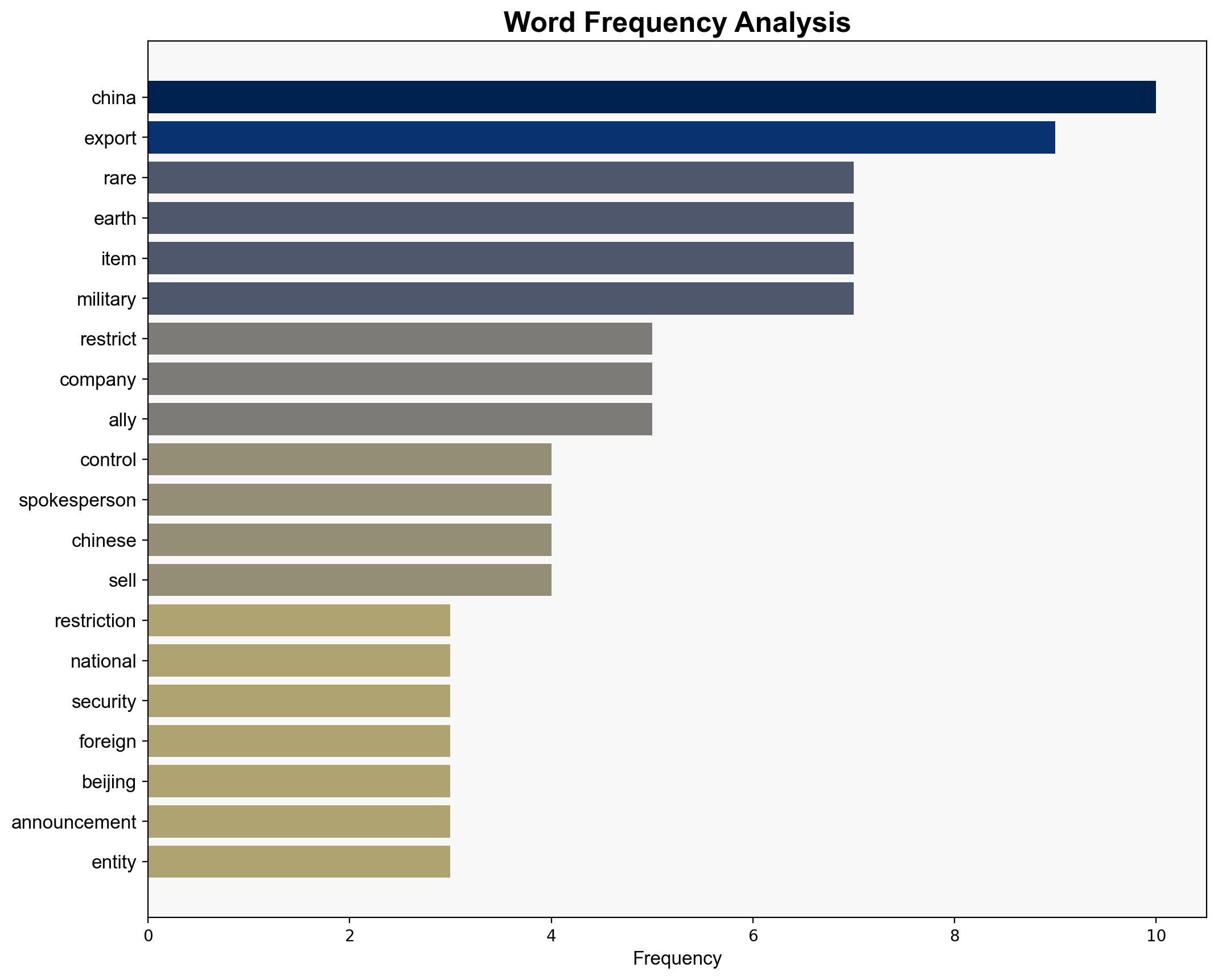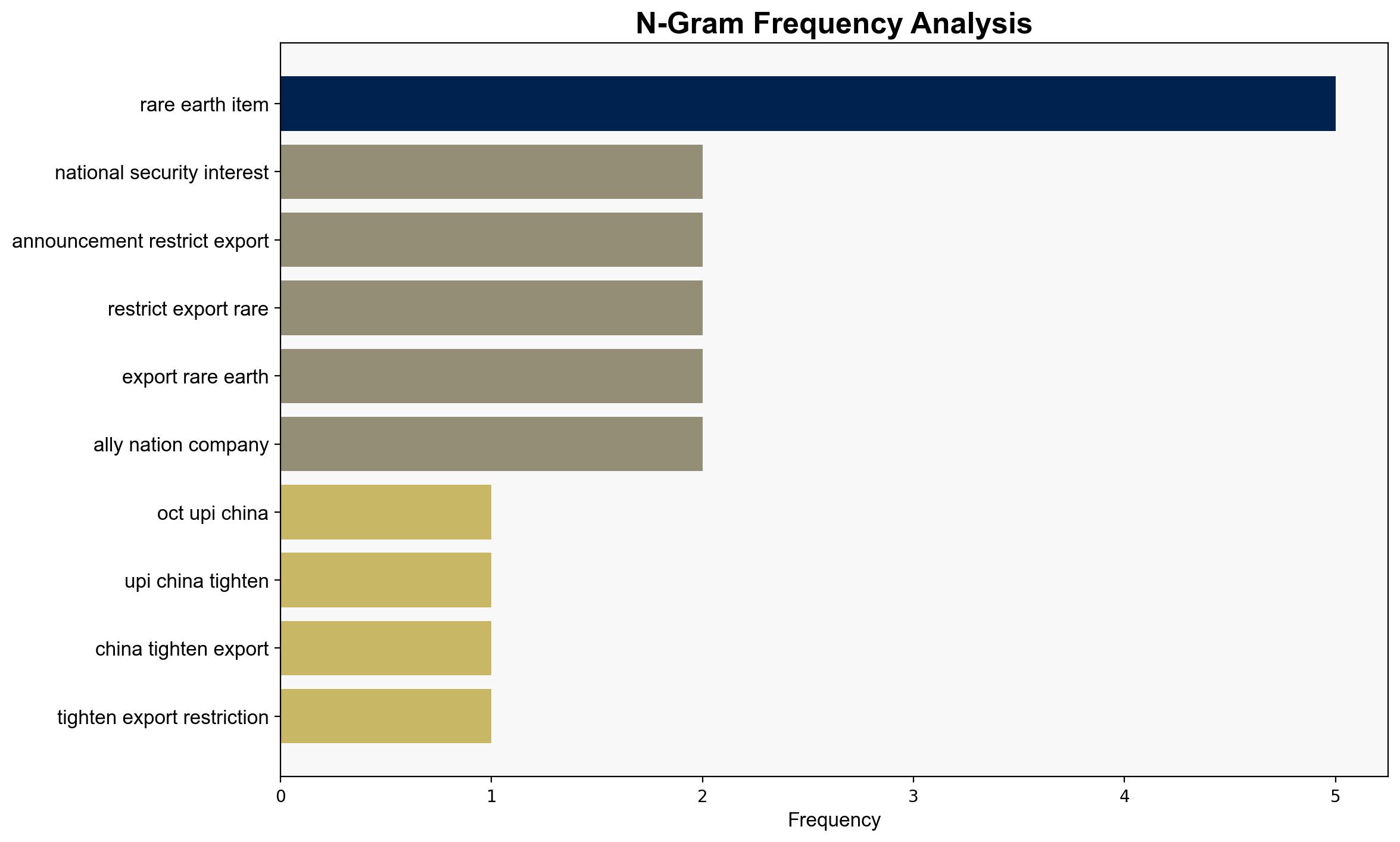China tightens export restrictions on rare earth items materials – UPI.com
Published on: 2025-10-09
Intelligence Report: China tightens export restrictions on rare earth items materials – UPI.com
1. BLUF (Bottom Line Up Front)
China’s recent tightening of export restrictions on rare earth materials is likely driven by strategic national security concerns and geopolitical maneuvering. The most supported hypothesis is that China aims to leverage its dominance in rare earth elements to counterbalance Western technological and military advancements. Confidence level: High. Recommended action: Strengthen alliances and diversify supply chains to mitigate dependency on Chinese rare earth materials.
2. Competing Hypotheses
1. **Hypothesis A**: China is imposing these restrictions primarily to safeguard national security by preventing rare earth materials from enhancing foreign military capabilities, particularly those of Western nations.
2. **Hypothesis B**: The restrictions are a strategic economic maneuver to maintain control over the global supply chain of rare earth materials, thereby exerting geopolitical influence and counteracting Western export controls on semiconductor technology.
Using ACH 2.0, Hypothesis A is better supported due to China’s explicit mention of national security concerns and historical precedence of using export controls as a security measure. Hypothesis B, while plausible, lacks direct evidence in the current announcement.
3. Key Assumptions and Red Flags
– **Assumptions**:
– China perceives a direct threat from the technological advancements of Western nations.
– The global market’s dependency on Chinese rare earth materials remains high.
– **Red Flags**:
– Lack of specificity regarding which foreign entities pose a threat.
– Potential underestimation of China’s willingness to endure economic repercussions for strategic gains.
4. Implications and Strategic Risks
– **Economic**: Disruption in global supply chains could lead to increased costs and delays in high-tech industries reliant on rare earth materials.
– **Geopolitical**: Heightened tensions between China and Western nations, potentially leading to retaliatory trade measures.
– **Cybersecurity**: Increased risk of cyber espionage as nations seek alternative sources or methods to acquire rare earth materials.
– **Psychological**: Perception of China as a dominant force in critical materials could influence global diplomatic alignments.
5. Recommendations and Outlook
- Enhance diplomatic efforts with countries possessing rare earth reserves to develop alternative supply chains.
- Invest in research and development for rare earth recycling and substitution technologies.
- Scenario Projections:
– **Best Case**: Successful diversification reduces dependency on Chinese materials, stabilizing supply chains.
– **Worst Case**: Escalation of trade tensions leads to broader economic conflict.
– **Most Likely**: Gradual adaptation by Western nations, with intermittent disruptions as new supply chains are established.
6. Key Individuals and Entities
– Raja Krishnamoorthi: U.S. House Representative, involved in advocating for aligned export controls.
– Companies: Tokyo Electron, Lam Research, KLA, ASML, Applied Materials.
7. Thematic Tags
national security threats, economic strategy, geopolitical influence, supply chain resilience




